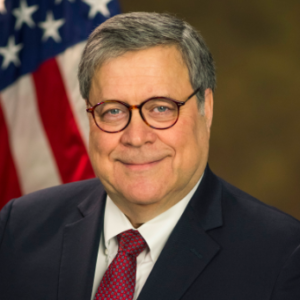Since Attorney General William Barr issued a four-page letter purporting to summarize Robert Mueller’s Russia probe was released Sunday, even respectable media outlets have run misleading headlines like “Mueller Finds No Conspiracy” or “Mueller Report Lifts a Cloud Over Trump’s Presidency.”
There’s just one problem. None of those outlets have seen the report.
All we’ve seen is the very carefully worded letter from Barr, and there’s plenty of reason to be skeptical of his interpretation. After all, Trump selected Barr with this very moment in mind.
Before his nomination, Barr — out of the blue — mailed the Justice Department a detailed, 19-page letter slamming Mueller’s obstruction investigation as unlawful. And now, except for his characterization and a few bits of information he cherry-picked to include, we have no idea what Mueller’s report actually says.
Just as our nation did not accept President Nixon’s offer to write up a summary of the Watergate tapes rather than hand them all over, the people of the United States and the officials we have elected to Congress must have Mueller’s report itself and the evidence it uncovered. Without the full report, media are forced to interpret Barr’s carefully constructed letter — and that’s led to some outrageously inaccurate media coverage.
One inaccurate line of reporting states that Mueller found no conspiracy or coordination by Trump or his campaign with Russia. This description has several substantial flaws.
First, quoting from the report, Barr says that “the investigation did not establish that members of the Trump Campaign conspired or coordinated with the Russian government in its election interference activities.” That does not mean there was not a mountain of evidence of collusion (much of which has been reported in the press over the past two years). It just means that, according to Barr, Mueller did not feel confident that he could prove it beyond a reasonable doubt in a court of law.
Second, Barr only mentions conspiracy and coordination “with the Russian government.” Does that mean that all of the unofficial contacts made via various proxies for Vladimir Putin don’t count? If so, why impose such a limitation? We won’t know until we see the report.
With regard to obstruction, the decision not to indict is hardly an exoneration. To the contrary, even Barr’s letter quotes Mueller as saying that “while this report does not conclude that the President committed a crime, it also does not exonerate him.”
According to the letter, Mueller laid out all the facts but — for reasons Barr does not explain — chose not to make a legal decision as to whether all the actions Trump engaged in constituted criminal obstruction. Barr himself then jumped in, and it was he, not Mueller, who concluded that the evidence was “not sufficient to establish that the President committed an obstruction-of-justice offense.”
Barr claims he made this decision “without regard to … the constitutional considerations that surround the indictment and criminal prosecution of a sitting president,” citing a 2000 Office of Legal Counsel memo concluding as a constitutional matter that a sitting president cannot be indicted. But his letter makes no similar disclaimer about the legal theories expressed in his unsolicited 2018 letter condemning the investigation’s obstruction of justice theory.
In addition, Barr’s legal explanation seems to be on shaky ground. He puts far too much weight than legal scholars say is merited on the absence of an indictment for conspiracy with the Russian government. So much for the cliche that “it isn’t the crime, it’s the cover-up.”
Congress and the people of the United States deserve to see the Mueller report for ourselves.
We also know that the matters investigated by Mueller are only part of a much larger picture. The special counsel looked at the actions of Trump and his colleagues only with the narrow perspective of a criminal prosecutor. Congress must still investigate them with a national security lens. There are a breathtaking number of other scandals not at all connected to what Mueller looked at, including corrupt violations of the Emoluments Clauses; the possibility that the president is under the control of — and making policy decisions to benefit — a hostile foreign power; security clearances granted to family members over the objections of security professionals; and much, much more.
We have a long way to go to hold the administration accountable. The first step is release of the entire Mueller report.

